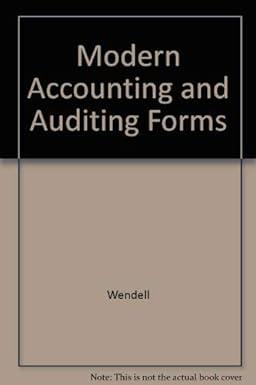Question
Katherine English founded the apple snack firm Tasty Apple in 1972. After Katherine English passed away in 2002, her son Mark took over management of
Katherine English founded the apple snack firm Tasty Apple in 1972. After Katherine English passed away in 2002, her son Mark took over management of the company. The company was up against fierce competition from regional snack-food producers by 2007. The company's plants needed to have better control over their production costs, Mark was told. He recruited a consultant to set up a standard costing methodology in order to accomplish this goal. Mark emailed the consultant the message below to assist in setting up the essential standards:
MEMO
To: Darlene Swasey, CMA
From: Mark English, President, Tasty Apple
Subject: Description and Data Relating to the Production of Our Cinnamon Apple Chips
Date: November 28, 2007
When the apples are put into a sizable vat where they are automatically washed, the making of our chips begins. After being thoroughly cleaned, the apples are sent right into machinery that automatically peels and cores the fruit. The apples are then physically trimmed free of any deep bruising or other flaws by inspectors after they have been peeled and de-cored. The apples are automatically sliced after inspection and placed in the cooking oil. A staffer keeps a close eye on the frying process. The cooked chips are then examined by other inspectors, who separate the undesirable final chips (those that are discolored or too small). The chips continue traveling along the conveyor belt until they reach a bagging device that packs them into one-pound bags. After that, the bags are shipped in a box.
The raw apple pieces (bruised and blemished), peelings, and rejected finished chips are sold to animal feed producers for $0.08 per pound. The cores are sold to a juice producer for $0.16 per pound. The company uses this revenue to reduce the cost of apples; we would like this fact reflected in the price standard relating to apples.
Tasty Apple purchases high-quality apples at a cost of $0.256 per pound. Each apple averages 4.25 ounces. Under efficient operating conditions, it takesfour apples to produce one 16-ounce bag of chips. Although we label bags as containing 16 ounces, we actually place 16.2 ounces in each bag. We plan to continue this policy to ensure customer satisfaction. In addition to apples, other raw materials are the cooking oil, cinnamon, bags, and boxes. Cooking oil costs $0.04 per ounce, and we use 3.3 ounces of oil per bag of chips. The cost of cinnamon is so small that we add it to overhead. Bags cost $0.12 each and boxes $0.62.
Our plant produces 9.2 million bags of chips per year. A recent engineering studyrevealed that we would need the following direct labor hours to produce this quantity if our plant operates at peak efficiency:
Raw apple inspection 3,150
Finished chip inspection 12,000
Frying monitor 6,300
Machine operators 6,300
Boxing 16,250
Im not sure that we can achieve the level of efficiency advocated by the study. In my opinion, the plant is operating efficiently for the level of output indicated if the hours allowed are about 10 percent higher.
The hourly labor rates agreed upon with the union are as follows:
Raw apple inspectors $17.68
Finished chip inspectors 13.00
Frying monitor 16.00
Boxing 13.68
Machine operators 15.00
Overhead is applied on the basis of direct labor dollars. We have found that variable overhead averages about 112 percent of our direct labor cost. Our fixed overhead is budgeted at $2,419,026 for the coming year.
Required:
1. Discuss the benefits of a standard costing system for Tasty Apple.
2. Discuss the presidents concern about using the result of the engineering study to setthe labor standards. What standard would you recommend?
3. Develop a standard cost sheet for Tasty Apples cinnamon apple chips.
4. Suppose that the level of production was 9.2 million bags of apple chips for the year as planned. Assuming that 9.8 million pounds of apples were used, compute the direct materials usage variance for apples.
Step by Step Solution
There are 3 Steps involved in it
Step: 1

Get Instant Access to Expert-Tailored Solutions
See step-by-step solutions with expert insights and AI powered tools for academic success
Step: 2

Step: 3

Ace Your Homework with AI
Get the answers you need in no time with our AI-driven, step-by-step assistance
Get Started


